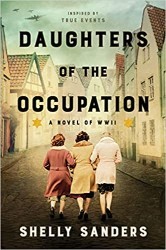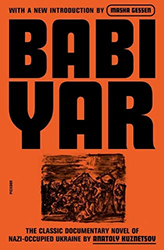For nearly twelve years of his life, John Carr believed his father was Catholic. On learning otherwise, he became “curious to know why Dad had lied in the first place and then kept the secret for so long.” John wondered if it explained “his lack of love for and distance from me as a child,” and he felt “driven” to find out.
In due course, it became clear that Henry Carr (an alias for Chaim Herszman) was born a Polish Jew. He was “embarrassed by and ashamed” that he had deceived his wife and five Catholic sons. Reconciliation led to Chaim steadily opening up to John, who then interviewed him at length over several years, tracing in detail his father’s extraordinary European experiences.
John concludes that while his father is not deserving of “a free pass exactly,” his father does merit “understanding and unconditional acceptance. If anyone could say their life had been shaped by events beyond their control, it was Dad.” These out-of-control events occurred as Chaim passed as a runaway German in Nazi-occupied Europe. He was desperately avoiding arrest and execution for having killed a Nazi ghetto guard who had been about to shoot his disabled younger brother.
Chaim’s odyssey began with him barely surviving ghetto atrocities during the German occupation of Łódź, Poland. Poland was then the only one of twenty-four conquered countries where occupiers had been authorized by the Third Reich to kill anyone at any time for any reason. Over the next three years, Chaim experienced close calls in Poland, Germany, Spain, France, and the Polish border with Russia. Chaim relied on his blond hair and blue eyes, along with a keen capacity for languages and a razor-sharp mind.
Living on his wits, Chaim survived as a chameleon, a shape-shifter; he often committed petty crimes rationalized by three goals— to somehow rescue his family from the Nazis, join the fighting remnant of the Polish Army, and stay alive to post-war liberation.
As a fugitive, Chaim received unexpected critical assistance from several non-Jews. He sheltered in a bakery run by a Polish family; with an anti-Hitler German family headed by a Wehrmacht soldier; and with elderly French farmers “who thought of themselves as resistance fighters.” Chaim told his son John “all humans are not the same. There were pockets of goodness left even in the presence of overwhelming evil.”
Chaim resolved to get even, and he eventually enlisted as a member of the British Army (but only after being suspected by the British of being a Nazi spy). He fought the German troops, but was wounded.
At the war’s end Chaim searched unsuccessfully in liberated Poland for his family members. Postwar Polish violence against survivors seeking return of their prewar homes made him resolved to never set foot there again.
Intent on becoming a tailor’s cutter in 1949 Scotland, Chaim fell in love with a young Irish Catholic woman. When she became pregnant, he secretly got himself baptized Catholic, and married under the name Henry Carr. The family resided thereafter in a relatively devout closely knit Irish Catholic community in the north of England. In 2005 on the tenth anniversary of Chaim’s death, his family put up a plaque in his honor in the main cemetery in Łódź.
Chaim’s memoir uniquely conveys much worth knowing about diverse participants in the Holocaust, especially many courageous upstanders, and is an artfully written account by a loving son of his father’s colorful life.
Professor Emeritus of Sociology, Professor Arthur B. Shostak is the author in 2017 of Stealth Altruism: Forbidden Care as Jewish Resistance in the Holocaust. Since his 2003 retirement from 43 years teaching sociology he has specialized in Holocaust studies.





